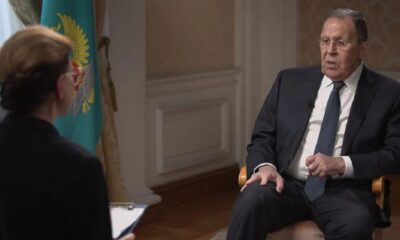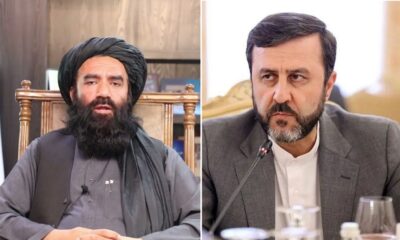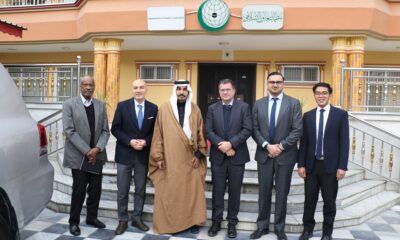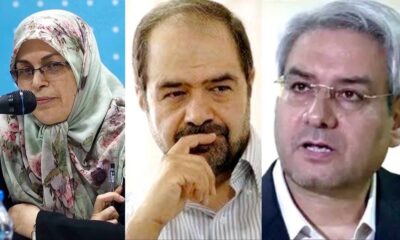Latest News
Record levels of hunger persist in Afghanistan, WFP warns in latest report
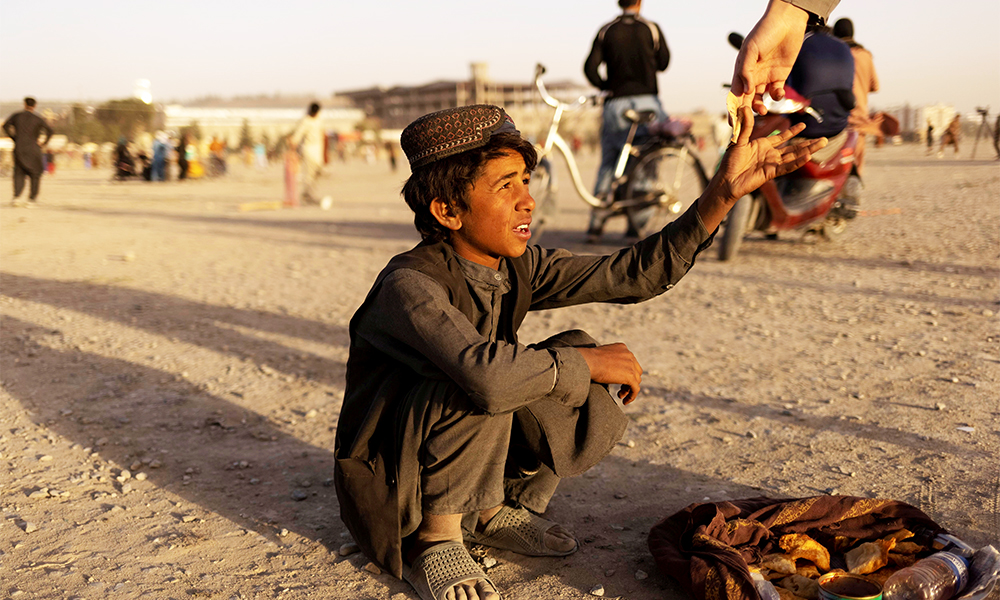
Almost half of Afghanistan’s population – 19.7 million – are facing acute hunger according to the latest Integrated Food Security Phase Classification (IPC) analysis conducted in January and February this year by food security cluster partners of the United Nations.
The report, published on Monday, predicts that the outlook for June to November this year sees a slight improvement in the food security situation, with a reduction in the number of people facing acute food insecurity to 18.9 million people.
This is due in part to the coming wheat harvest from May to August, and this year’s well-coordinated scale-up of humanitarian food assistance – alongside increased agricultural livelihood support.
However, gains will be limited – the report warns.
Lingering drought and the deep economic crisis mean that unprecedented hunger will continue to threaten the lives and livelihoods of millions of people across Afghanistan.
“Of particular concern – and for the first time since the introduction of the IPC in Afghanistan in 2011 – a small pocket of ‘catastrophic’ levels of food insecurity – or IPC Phase 5 – has been detected in the country,” the World Food Program (WFP) reported.
“More than 20,000 people in the north-eastern province of Ghor are facing catastrophic levels of hunger because of a long period of harsh winter and disastrous agricultural conditions.
Unprecedented levels of humanitarian assistance focused on bolstering food security have made a difference. But the food security situation is dire, the report stated.
“Humanitarian assistance remains desperately important, as do the needs to rebuild shattered agricultural livelihoods and re-connect farmers and rural communities to struggling rural and urban markets across the country. Unless these happen, there will be no way out of this crisis,” said Richard Trenchard, FAO Representative in Afghanistan.
“Food assistance and emergency livelihood support are the lifeline for the people of Afghanistan. We mounted the world’s largest humanitarian food operation in a matter of months, reaching more than 16 million people since August 2021,” said Mary-Ellen McGroarty, WFP’s Country Director and Representative in Afghanistan.
“We are working with farmers, millers, and bakeries, training women and creating jobs to support the local economy. Because the people of Afghanistan would much prefer jobs; women want to be able to work; and all girls deserve to go to school. Allowing the economy to function normally is the surest way out of the crisis, otherwise suffering will grow where crops cannot,” she added.
The upcoming harvest will bring some relief to millions of families struggling with income losses and food shortages.
However, for many, the harvest will only offer short-term relief and very little opportunity for recovery.
In addition to this, the war in Ukraine continues to put pressure on Afghanistan’s wheat supply, food commodities, agricultural inputs, and fuel prices. Access to seeds, fertilizer and water for irrigation is limited, labour opportunities are scarce and enormous debts have been incurred to buy food over the last few months.
Both FAO and WFP continue to scale up their programmes across the country. WFP has reached more than 16 million people so far in 2022 with emergency food assistance, and is supporting local markets, working with retailers and local suppliers. WFP continues to invest in people’s livelihoods through skills training and climate adaption projects so that families can cultivate their land and grow their own food.
FAO continues to scale up its assistance to farmers and herders in rural areas and will assist more than nine million people in 2022 through a range of interventions supporting crop, livestock and vegetable production, cash transfers and the rehabilitation of vital irrigation infrastructure and systems.
Latest News
Terrorist activities observed along Afghanistan borders, says Lavrov
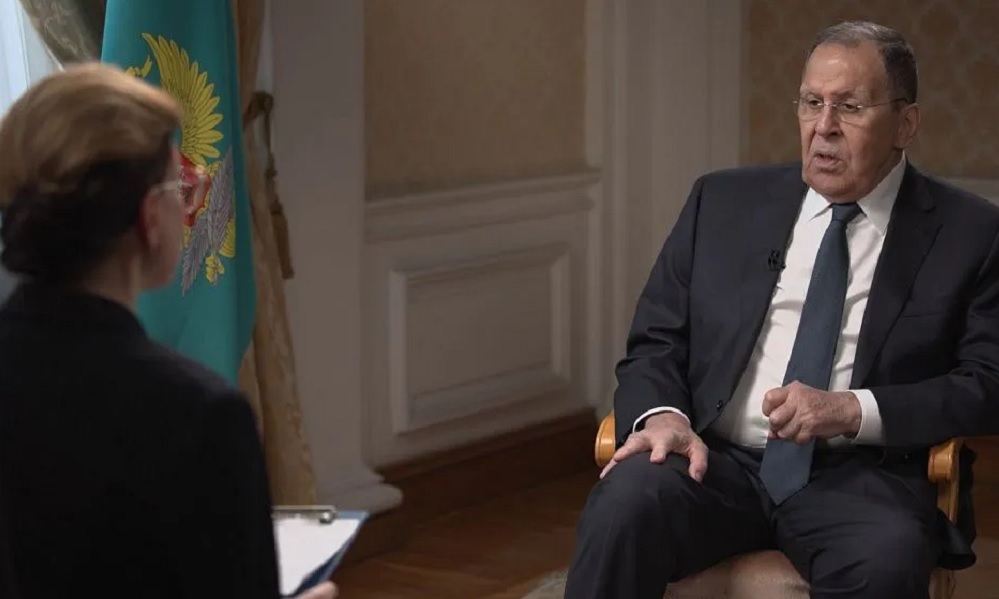
Terrorist activities continue to be observed along Afghanistan borders and along the India–Pakistan–Afghanistan corridor, Russian Foreign Minister Sergei Lavrov said in an interview published on Monday.
Speaking to Russia-based media outlet TV BRICS, Lavrov pointed to ongoing concerns in the Middle East, including its Asian regions.
He highlighted the importance of collaboration with India at the United Nations to advance a global counter-terrorism convention.
Lavrov stated that while the draft convention has already been prepared, consensus on its adoption has not yet been reached.
Russia has repeatedly expressed concern about militant threats from Afghanistan. The Islamic Emirate, however, has dismissed the concerns saying that it will not allow Afghanistan’s soil to be used against any country.
Latest News
Afghan border minister holds phone talks with Iran’s deputy foreign minister
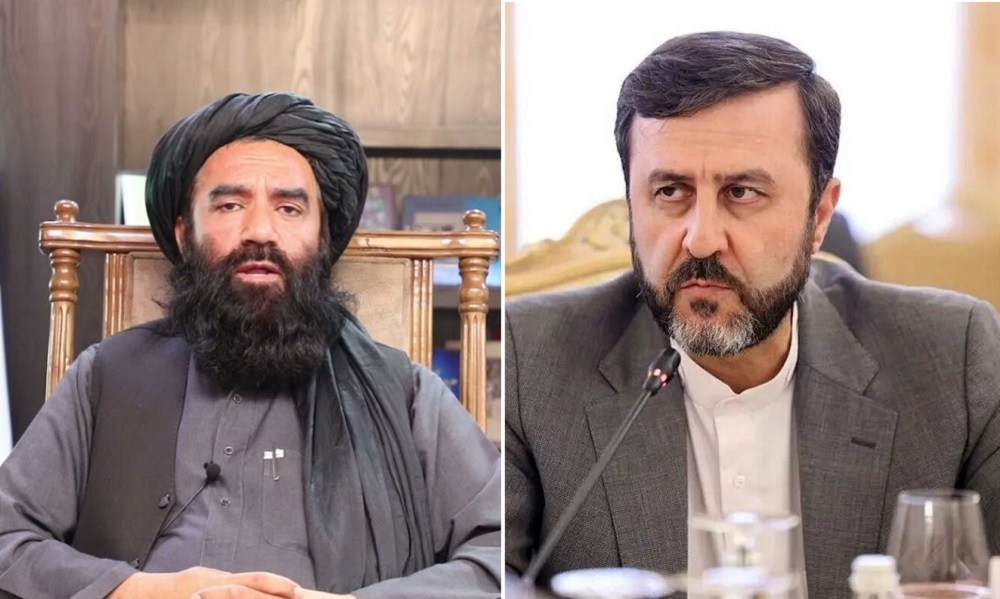
Noorullah Noori, Afghanistan’s Minister of Borders and Tribal Affairs, held a phone conversation with Kazem Gharibabadi, Iran’s Deputy Foreign Minister for Legal and International Affairs, to discuss bilateral border cooperation.
According to the Iranian news agency IRNA, both sides reaffirmed their commitment to strengthening border collaboration, with a particular focus on the ongoing renovation and updating of border markers. They also agreed to accelerate joint technical and legal meetings to enhance coordination.
As part of the agreement, the next meeting of senior border officials from Afghanistan and Iran is scheduled to take place in Iran in 1405 (2026–2027).
Latest News
OIC Kabul mission chief meets German envoy to discuss Afghanistan situation
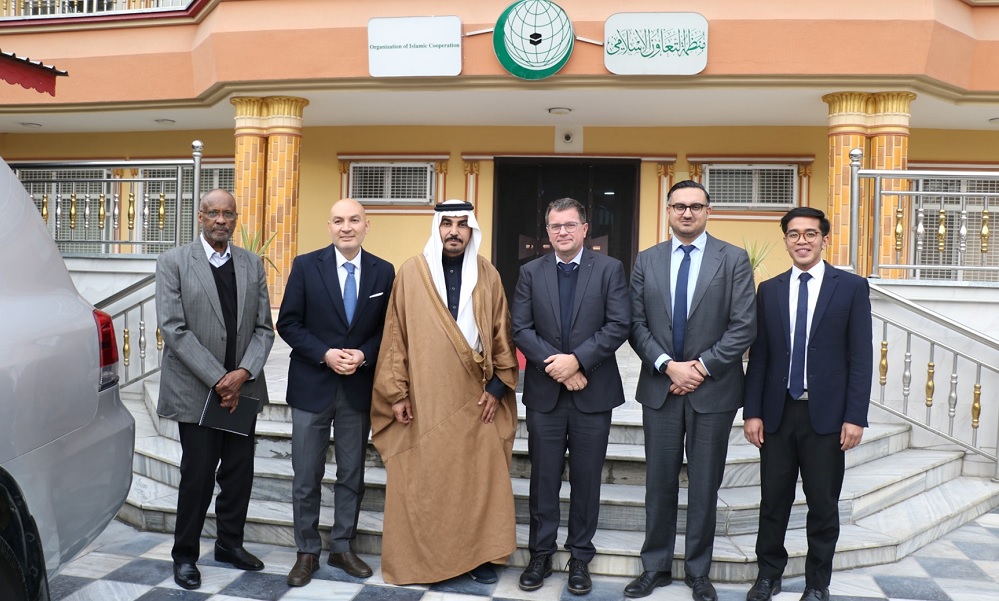
The Director General of the OIC Mission in Kabul, Mohammed Saeed Alayyash, met on Sunday with Rolf Dieter Reinhard, Head of the German Liaison Office for Afghanistan in Doha and Acting Chargé d’Affaires of the German Embassy in Afghanistan.
During the discussion, both sides exchanged views on the latest developments in Afghanistan. They focused on the security situation, as well as the humanitarian and economic conditions faced by the Afghan people.
The two officials also reviewed recent political developments and broader challenges in the country, highlighting the need for continued international engagement and support.
The meeting emphasized the importance of ongoing cooperation and coordination between the OIC Mission and the German side in addressing Afghanistan’s challenges and in supporting efforts to promote stability and improve the humanitarian situation.
-

 Latest News2 days ago
Latest News2 days agoAfghanistan to grant one- to ten-year residency to foreign investors
-

 Latest News4 days ago
Latest News4 days agoTerrorist threat in Afghanistan must be taken seriously, China tells UNSC
-

 Sport5 days ago
Sport5 days agoAfghanistan beat West Indies in final T20 WC warm-up match
-

 Sport3 days ago
Sport3 days agoIndonesia shock Japan to reach historic AFC Futsal Asian Cup final
-

 Sport4 days ago
Sport4 days agoMilano Cortina 2026 Winter Olympics: What You Need to Know
-

 Sport2 days ago
Sport2 days agoIran clinch AFC Futsal Asian Cup 2026 in penalty shootout thriller
-

 Latest News4 days ago
Latest News4 days agoUS Justice Department to seek death penalty for Afghan suspect in National Guard shooting
-
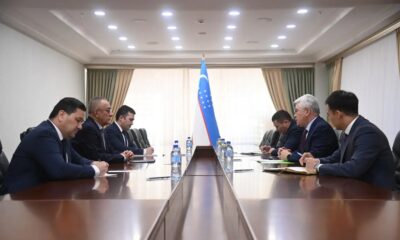
 Latest News4 days ago
Latest News4 days agoUzbekistan, Kazakhstan discuss cooperation on Afghanistan


